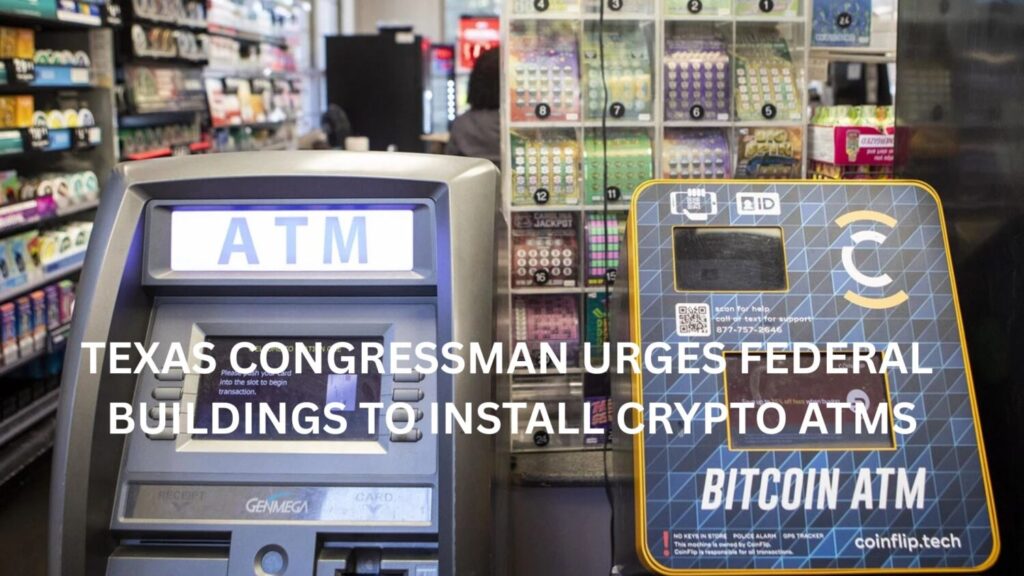Key Takeaways
- Gooden argued that crypto has become a “core element” of modern finance and suggested that increasing its visibility in government buildings would support innovation and enhance accessibility for the public.
- The machines have become popular tools for scammers who exploit their anonymity and lack of oversight.
A Texas lawmaker is calling on the federal government to install cryptocurrency ATMs in public buildings, framing the move as a step toward financial modernization amid the backdrop of increasing scrutiny for crypto kiosks.
In a letter sent Thursday to the General Services Administration (GSA), Representative Lance Gooden proposed that the agency evaluate the integration of crypto kiosks in federal properties. The GSA is responsible for managing federal real estate, including the placement of traditional ATMs in certain facilities.
Gooden argued that crypto has become a “core element” of modern finance and noted that increasing its visibility in government buildings would support innovation and enhance accessibility for the public.
“This is an opportunity to signal support for emerging technologies and ensure Americans have convenient, secure access to digital assets,” the letter read. Gooden also stated the proposal aligns with former President Donald Trump’s vision of U.S. leadership in blockchain innovation.
However, the proposal lands at a time when lawmakers and regulators are grappling with rising reports of fraud tied to crypto ATMs. According to the FBI’s Internet Crime Complaint Center, nearly 11,000 reports involving these machines were filed in 2024—almost double the previous year. Reported losses exceeded $246 million, with elderly users suffering over $107 million in damages.
The machines, which convert cash into crypto, have become popular tools for scammers who exploit their anonymity and lack of oversight. Victims are often coerced into using them under the guise of government impersonation, fake tech support, or fraudulent investment opportunities.
Lawmakers at the state and federal level have begun pushing for stronger oversight. Senator Dick Durbin (D-IL) introduced the Crypto ATM Fraud Prevention Act earlier this year, which seeks to impose transaction caps, enforce refund policies, and require user warnings at kiosks.
Some jurisdictions have already taken unilateral action. The United Kingdom has banned all crypto ATMs outright, while countries like Germany and Australia have moved to regulate unlicensed operators. In the U.S., states like Nebraska have imposed transaction and fee limits, and some municipalities have banned the machines entirely.
Despite these developments, Gooden insists that carefully regulated deployment could benefit both consumers and policymakers. His letter calls for a feasibility study that would include strict compliance with anti-money laundering rules, identity verification, and transparent fee structures.
It remains unclear whether the GSA has the legal authority to approve crypto ATM installations from private entities such as Bitcoin Depot or CoinFlip. The agency currently permits ATMs affiliated with federal credit unions in select locations. As of this writing, GSA’s acting administrator Stephen Ehikian has not commented publicly on the proposal.
Gooden has previously co-sponsored legislation opposing the introduction of a central bank digital currency (CBDC) and has been a strong advocate of pro digital asset policy.


